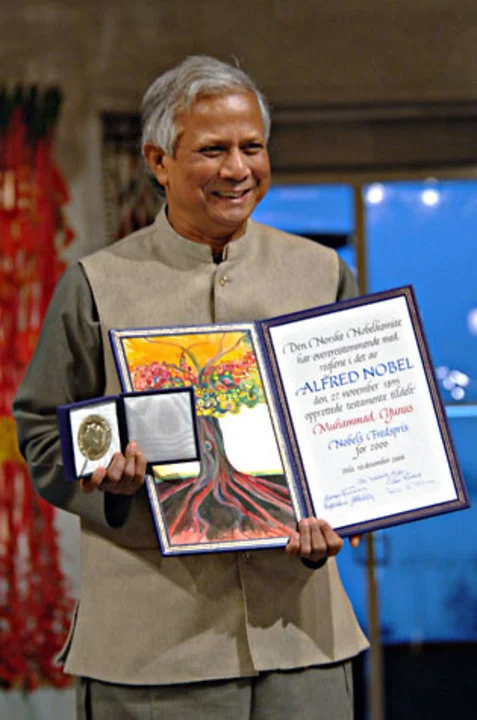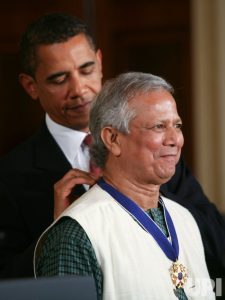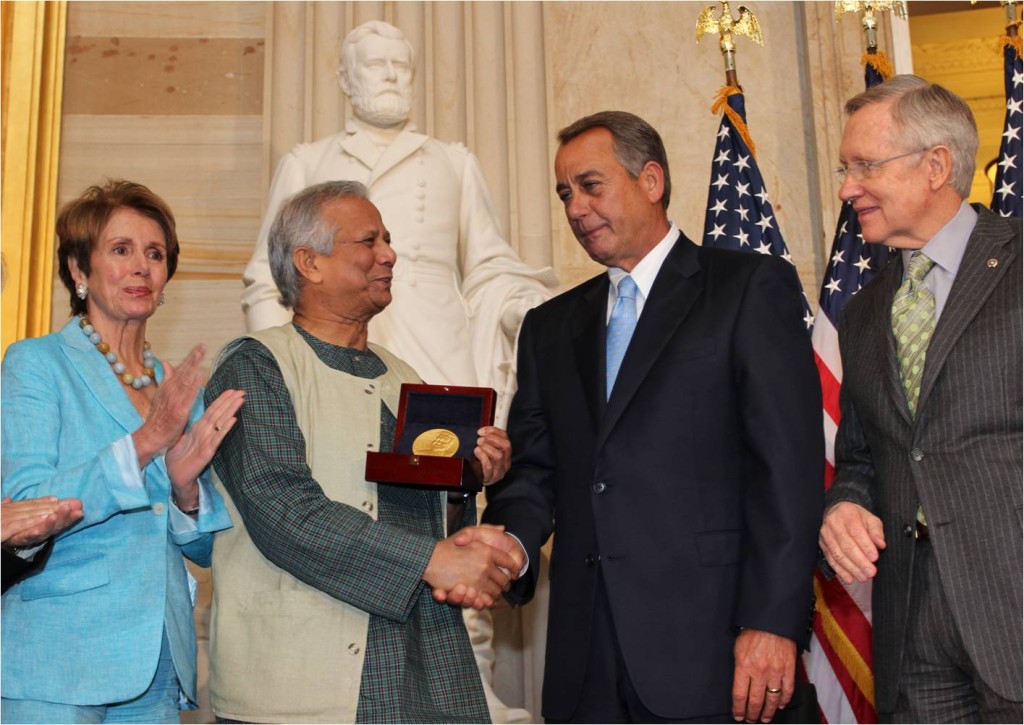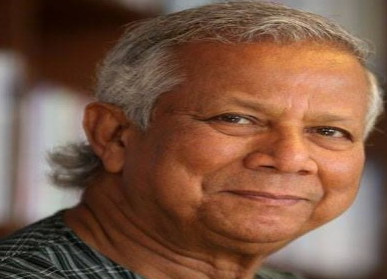Muhammad Yunus, the Chief Adviser of the interim government, celebrates his 85th birthday on Saturday. He was born on June 28, 1940, in Bathua village of Shikarpur Union, Hathazari Upazila, Chattogram district. On this day, many individuals, organisations, and well-wishers from home and abroad have extended their greetings and congratulations to Muhammad Yunus.

This Nobel Prize-winning economist was chosen last August, through an all-party consensus following the coup, to serve as Chief Adviser. Formed with the agreement of the main political parties and mediation by patriotic members of the armed forces, this interim government has been working toward a democratic transition and fair elections in the country.
Nobel laureate Muhammad Yunus has long championed the idea that “credit is a human right,” challenging traditional financial systems that exclude the poor. He argues that “poverty is not created by poor people” but rather by “the system we have built,” stressing that “the poor themselves can create a poverty-free world” if freed from structural chains. His philosophy of “putting the last first” underpins the mission of microfinance, which, Yunus says, is “much more than lending money to poor women” — it is about “giving people an opportunity to change their lives.”
Describing every human being as “a born entrepreneur” with “creativity built in,” Yunus believes that while “making money is a happiness, making other people happy is a super happiness.” He envisions microcredit as a tool to “decentralize economic power” in a world dominated by the wealthy few, and urges people to remember that “if you can imagine it, you can do it.” Through “social business — a non-loss, non-dividend company designed to address a social objective,” Yunus continues to advocate for a sustainable, inclusive economic model.

The ousted Hasina government had once filed several “harassment-driven” cases against him, including allegations of money laundering and violations of labor laws, which have now been dismissed by the courts. Critics had long claimed those cases were “politically motivated,” and current realities seem to vindicate that view. Muhammad Yunus’s leadership has also drawn praise internationally — policymakers and human rights organizations around the world have welcomed this government.
The interim government has already taken important steps to restructure the Election Commission, ensure judicial transparency, and protect freedom of expression. Yunus himself still refrains from overt political statements, but under his leadership the country is moving toward a new democratic journey.
Muhammad Yunus was born on June 28, 1940, in Bathua village, Shikarpur Union, Hathazari Upazila of Chattogram district. His father, Dula Miah Soudagar, was a court clerk, and his mother, Sufia Khatun, was a homemaker. His wife is Professor Dina Afroz, and together they have two daughters.
Muhammad Yunus and the Grameen Bank he founded were jointly awarded the Nobel Peace Prize in 2006. He was the first Bangladeshi to receive this highest international recognition. In addition to the Nobel, he has been honored with numerous national and international awards, including the World Food Prize, establishing him as a globally recognized social entrepreneur dedicated to human welfare.
Muhammad Yunus was exceptionally talented in his studies. After completing his matriculation examination from Chattogram Collegiate School, he ranked 16th among nearly 39,000 candidates in what was then East Pakistan. He then studied at Chattogram College and later earned his bachelor’s degree in economics from Dhaka University. In 1961, he began his professional career as a lecturer in economics at Chattogram College, later rising to the rank of professor.
In 1965, he received a Fulbright Scholarship to pursue higher education in the United States. There, he enrolled in the Graduate Program in Economic Development at Vanderbilt University, earning a PhD in economics in 1971. He then joined Middle Tennessee State University in the United States as an assistant professor of economics.
During Bangladesh’s Liberation War in 1971, while in the United States, Yunus formed a citizens’ committee. Along with other expatriate Bangladeshis, he played an important role in building public opinion and support for the Liberation War by running the ‘Bangladesh Information Center’ in the US.
After the country’s independence, in the context of the 1974 famine, Muhammad Yunus began fighting poverty and social inequality. At that time, he launched rural economic projects aimed at providing financial support to disadvantaged communities. In 1976, he experimentally launched the ‘Grameen Bank Project’ in Jobra village, near Chattogram. Later, in 1983, this project was formally established as the ‘Grameen Bank’.

Today, the Grameen Bank model has expanded to most villages of Bangladesh, and it has achieved worldwide recognition. Outside Bangladesh, the model is being replicated in nearly 40 countries, including the United States.
For his contributions to poverty alleviation and financial inclusion, Muhammad Yunus has received countless awards at home and abroad. In 1987, he received the Independence Award. In addition, he is among the very few individuals who have been honored with the Nobel Peace Prize, the United States Presidential Medal of Freedom, and the Congressional Gold Medal — three of the world’s most prestigious honors.


